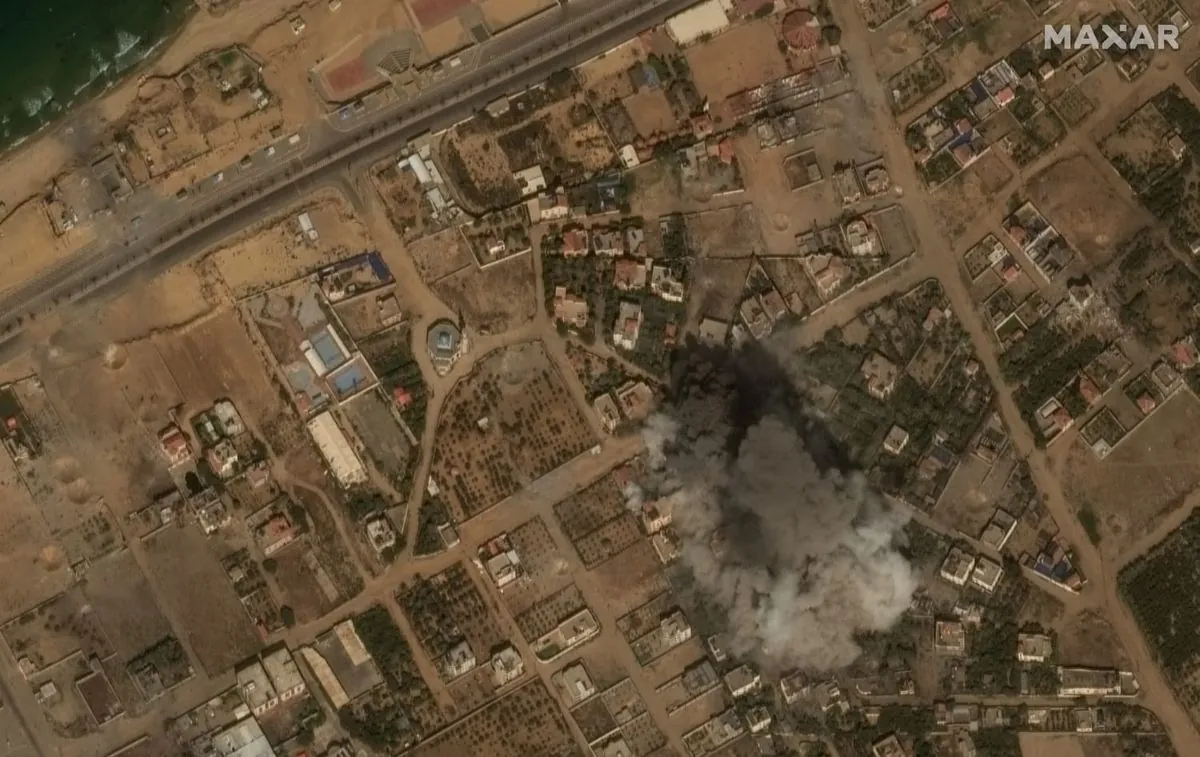Hamas Hostage Executions Complicate Cease-Fire Talks with Israel
Hamas's execution of six Israeli hostages has complicated ongoing cease-fire negotiations. The proposed deal involves a three-phase plan for hostage release and troop withdrawal, with the Philadelphi Corridor being a major point of contention.

The recent execution of six Israeli hostages by Hamas has significantly complicated the ongoing cease-fire negotiations between Israel and the Palestinian militant group. A senior Biden administration official, speaking anonymously, described the killings as "horrific" and noted that the executed hostages were part of a list intended for release in the initial phase of a proposed truce.
The proposed agreement, mediated by the United States, Qatar, and Egypt, outlines a three-phase plan for hostage release and troop withdrawal. The first phase includes increased humanitarian aid to Gaza, a hostage-prisoner exchange, and a temporary cease-fire. The second phase aims for a permanent cease-fire and complete withdrawal of Israel Defense Forces (IDF) from Gaza, while the third focuses on reconstruction and establishing a civilian Palestinian governing structure.

A major point of contention in the negotiations is the Philadelphi Corridor, an eight-mile-long border between Israel and Egypt. Benjamin Netanyahu, Israel's Prime Minister, has publicly insisted that Israeli forces will never abandon this area, which he claims is used by Hamas to smuggle Iranian-supplied weapons into Gaza. This stance conflicts with the proposed agreement's terms and has created tension in the negotiations.
"We made the decision. We're not going to leave."
The Biden administration official emphasized the complexity of the situation, noting that the definition of "densely populated" areas in Gaza, from which Israeli forces would withdraw, is a key point of discussion. The official also highlighted the need for both sides to make concessions to reach an agreement.
Mediators are now preparing what they describe as a "final offer" to balance the seemingly irreconcilable positions. This offer is expected to be ready within the next week, as of September 5, 2024.
The Gaza Strip, one of the most densely populated areas in the world, has been under a blockade by Israel and Egypt since 2007 when Hamas took control of the territory. The ongoing conflict has its roots in decades of Israeli-Palestinian tensions, with the United Nations repeatedly calling for a two-state solution.
As negotiations continue, the fate of the remaining hostages and the prospect of a lasting cease-fire hang in the balance. The international community watches closely, hoping for a resolution that can bring peace to this long-troubled region.


































